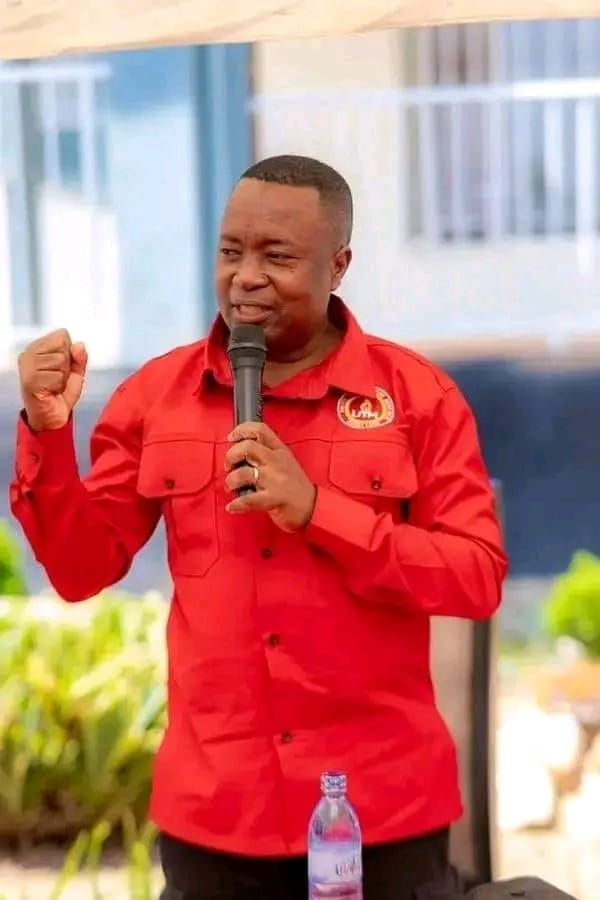By Twink Jones Gadama
The UTM party’s recent convention has left many Malawians wondering how Dr. Dalitso Kabambe, a relative newcomer, managed to secure a landslide victory over seasoned party members like Patricia Kaliati, Newton Kambala, and Mathews Mtumbuka.
To understand this unexpected turn of events, let’s dive into the factors that contributed to Kabambe’s success.
*The Power of Fresh Perspective*
Dr. Dalitso Kabambe’s landslide victory in the UTM party’s recent convention can be attributed to the power of fresh perspective.
As a relative newcomer, Kabambe brought a fresh set of eyes and ideas to the table, unencumbered by the party’s internal dynamics and historical baggage.
This allowed him to approach problems and challenges with a clean slate, unafraid to challenge the status quo and propose innovative solutions.
Having a fresh perspective can be incredibly valuable, especially in politics where stagnation and complacency can be detrimental.
It enables leaders to identify unseen opportunities, think outside the box, and craft new, improved realities.
In Kabambe’s case, his fresh perspective likely resonated with party members seeking change and a break from the traditional power structures.
By leveraging the power of fresh perspective, Dr. Kabambe was able to connect with party members and secure a landslide victory.
His success serves as a testament to the importance of innovation and forward thinking in politics.

Challenging the status quo
Dr. Dalitso Kabambe’s landslide victory in the UTM party’s recent convention can be attributed, in part, to his willingness to challenge the status quo.
By doing so, he appealed to party members seeking change and growth.
Challenging the status quo means shaking things up and pushing for change, which can be difficult, especially when those in power tend to retain it.
In the context of UTM, Kabambe’s challenge to the status quo likely meant questioning traditional power structures and proposing innovative solutions.
This approach resonated with delegates and party members eager for a fresh perspective.
By challenging the status quo, Kabambe demonstrated his commitment to progress and growth, setting him apart from seasoned party members.
To effectively challenge the status quo, leaders must prioritize ideas, collaborate with others, and be willing to take calculated risks.
By doing so, they can create a culture that values change and progress.
In Kabambe’s case, his willingness to challenge the status quo contributed significantly to his landslide victory.
The role of party dynamics
Dr. Dalitso Kabambe’s landslide victory at the UTM party convention can be attributed, in part, to the role of party dynamics.
The UTM party’s recent constitutional amendments, which aimed to improve the party’s structure and leadership processes, played a significant role in Kabambe’s success.
These amendments included the restructuring of regional divisions, expanding from four to five regions, which allowed for broader representation and greater inclusivity in urban and rural areas.
Additionally, the party introduced a five-year term limit for its leaders, promoting leadership renewal and accountability.
The amendments also ensured greater democracy and member involvement in the selection process of the deputy leader, who is now elected at the party’s convention.
The transition in party leadership following Dr. Saulos Chilima’s passing also created an opportunity for new leadership to emerge.
Michael Usi assuming the presidency and later withdrawing from the convention created a power vacuum that Kabambe capitalized on.
Kabambe’s victory coincided with his birthday, and in his acceptance speech, he acknowledged the strife within the party and congratulated the other candidates.
These factors combined to create a perfect storm that propelled Kabambe to victory, demonstrating the significance of party dynamics in shaping leadership outcomes.
Unity and Inclusivity
In his acceptance speech, Kabambe emphasized the importance of bringing all talent on board, signaling his intention to work collaboratively with all members of UTM.
This inclusive approach resonated strongly with delegates and party members, who are eager for a leader who can unite the party and drive meaningful change.
Kabambe’s commitment to unity was evident in his praise for his fellow competitors, acknowledging their unique leadership qualities and expressing gratitude for their participation in the convention.
By recognizing the strengths of others, Kabambe demonstrated his willingness to put aside personal interests and prioritize the party’s collective success.
By championing unity and inclusivity, Kabambe has set the tone for a new era of leadership within UTM, one that prioritizes collective success over individual interests.
As he prepares to lead the party into the 2025 elections, Kabambe’s commitment to unity will be crucial in maintaining momentum and energizing party members.
Conclusion
Dr. Dalitso Kabambe’s landslide victory is a testament to the power of fresh perspectives, unity, and inclusivity.
As UTM prepares for the 2025 general elections, Kabambe’s leadership will be crucial in shaping the party’s future.
Will he be able to maintain momentum and lead UTM to victory? Only time will tell.


